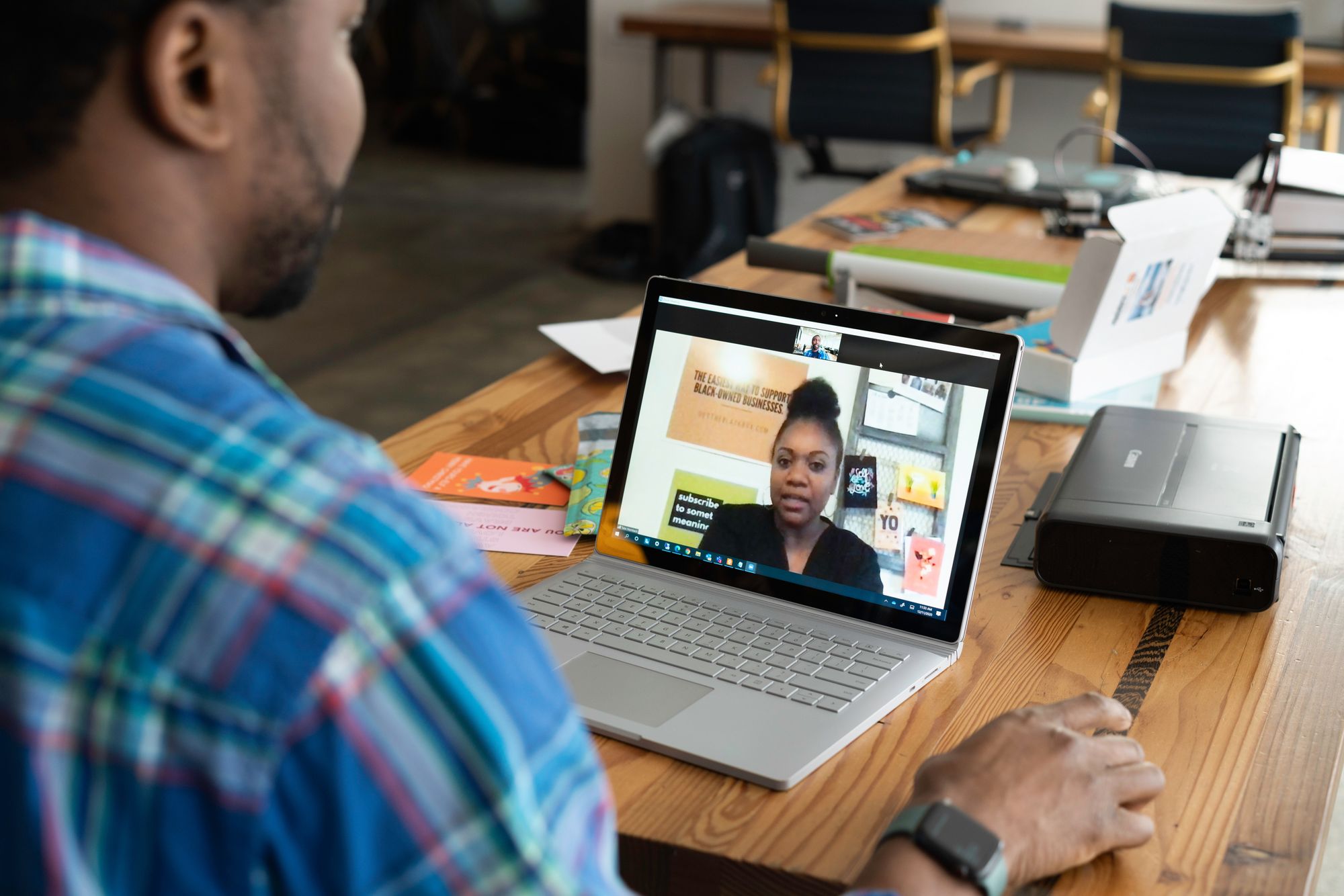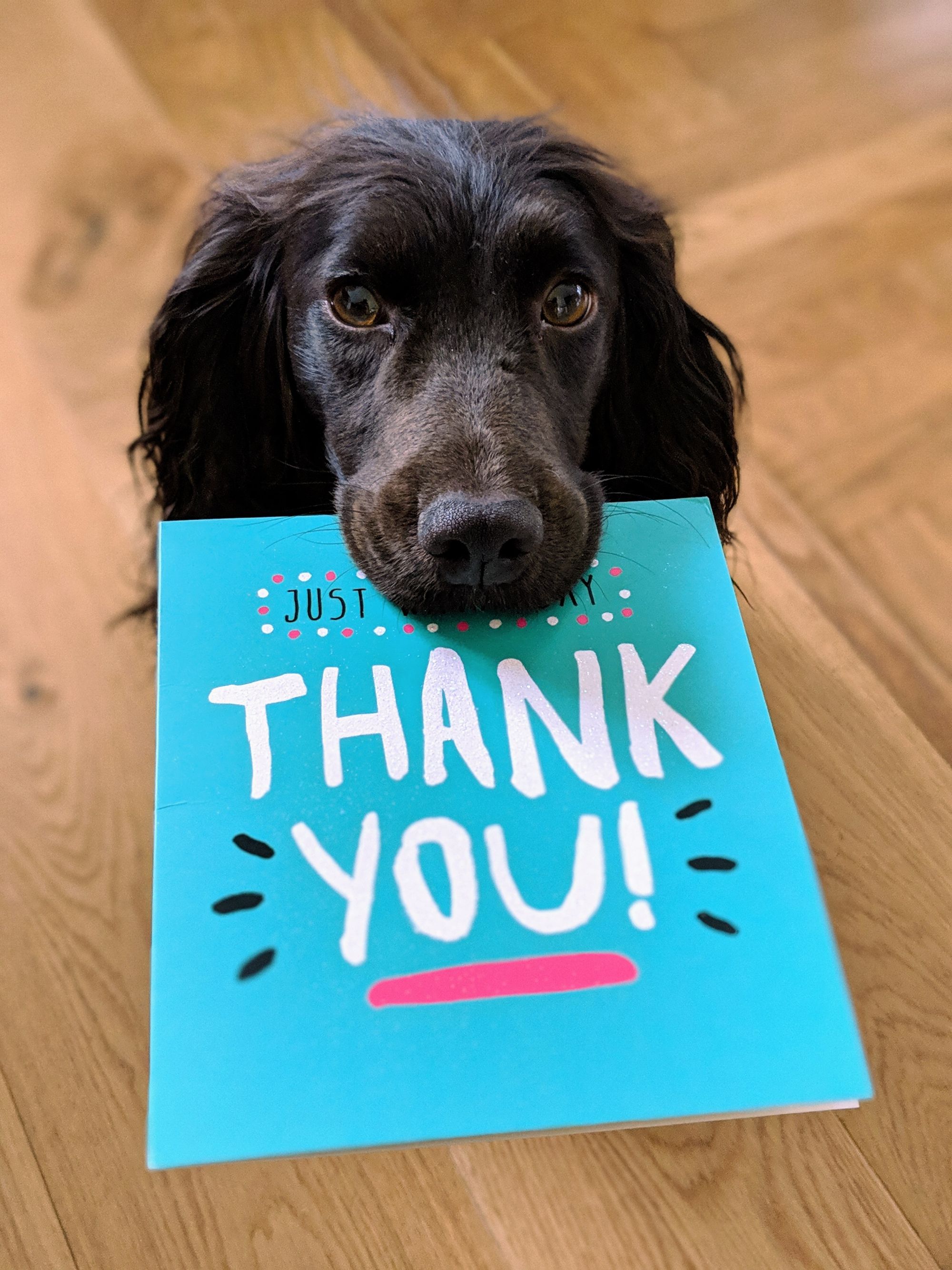You've prepared your professional resume, had it reviewed by a friend or two, and sent it off to potential employers. Congrats! You were asked to interview, had a great conversation with the hiring manager, and you're excited to start working, but they haven’t made an offer. What's next? Do you wait for a phone call that might never come?
If you really want the job, you might have to go the extra mile to get your shot.
Culture at a remote company is an intentional process. There’s no cafeteria where you can bump into your colleague for a casual chat. Meetings are scheduled days in advance, time zones need to be navigated, and every casual, friendly interaction is thought out.
Beyond qualifications, hiring managers want to know if your personality is a good fit for the company. Every interaction you have with the hiring manager should prove you’ll make an effort to get to know people and adapt to the company’s working style. That includes how you communicate with them after the job interview.
Here’s what I would do:
- Send a Thank You note.
- Review the hiring process.
- Wait at least 1 week to follow up.
- Send a short and sweet follow-up email, don’t call!
- Know when to cut your losses.

1. Send a Thank You note
First and foremost, send a Thank You note after the interview. Remember, every interaction you have with the hiring manager will influence their decision to hire you or not. Sending a simple Thank You note is an easy way to keep you in the hiring manager’s mind and bolster the impression you made during the interview.
The Thank You note is also a good opportunity to share more information about yourself, give a better answer to a question you struggled with during the interview, or strengthen your personal connection with the hiring manager. Keep in mind: You’re not begging for the job. You’re expressing gratitude and appreciation for the hiring manager’s time while putting your best foot forward.
For example,
Hi Margie,
Thank you for taking the time to interview me for the Marketing Manager position today (or yesterday).
I enjoyed our conversation about problem-solving and dealing with conflict in the workplace. It reminded me of a time when a coworker and I disagreed about whose presentation to share with a client. We both had equally good ideas but the client only wanted one proposal. In the end, our manager flipped a coin, I lost but we agreed the loser could lead the next project so it was a win-win for everyone. I hope to use the same tactic in the future to avoid conflict between team members. (Though in a remote setting, I guess we’d flip a bitcoin.😂)
Thanks again for your time. I look forward to hearing from you!
Sincerely,
Rachel Rondon
P.S. Y'all should read this for the next Marketing Team book club —if you haven’t already—, I’m sure you would love it😉: This is Marketing by Seth Godin
I wouldn’t send a Thank You note more than a day after the interview. It’s not as effective and would feel more like a smarmy afterthought than a show of good character. Done properly, a good Thank You note almost guarantees you the job. Don’t be surprised if you receive a job offer a day or two after sending your note, even if they don’t directly reply to your email. If not, don’t worry, not all is lost.

2. Review the hiring process.
3. Wait at least 1 week to follow up.
What if you haven’t heard from the hiring manager in a while?
Great question! First, what is a while?
Depending on the company and the role, recruiters can go through thousands of applications and hundreds of interviews with many impressive candidates. It can take them some time to make a decision about who to offer the role to or send to the next round of interviews.
A good rule of thumb is to wait at least one week from the last time you contacted the hiring manager to follow up with them (i.e. one week from the interview or from when you sent the Thank You note).
It’s also a good idea to go back to the job posting and review any information provided about their hiring process. Some companies are very straightforward about whether or not they’ll follow up, when they’ll follow up and how, and if you should follow up with them.
If the job posting says they won’t follow up with applicants unless making an offer, leave them be. You can Like all their posts on Instagram, stalk the company’s Facebook and Twitter accounts, and tweet about how awesome the company is, but for the love of God, don’t follow up if they told you not to. Otherwise, they’ll think you didn't read the job posting carefully or you didn't care. And no one wants to work with either of those people.
If they say they’re accepting applicants up until a certain date (and don’t say anything against following up), you should wait until after that date to follow up. They’ll be ready to make a decision by then if they haven’t already hired someone for the role.

4. Send a short and sweet follow-up email, don’t call!
It’s been at least a week since you spoke to the hiring manager. There’s no mention in any of your emails or the job posting that you shouldn’t follow up. How do you follow up?
First, don’t call.
It’s the 21st century. Everyone knows we reserve phone calls for important meetings, urgent conversations, or catching up with friends and family. Unfortunately, following up on your interview does not fall into any of those categories.
Unless the hiring manager or the job post explicitly states that you can call and who to call: Do. Not. Call.
Instead, you will send a short and sweet email reaffirming your continued interest in the position. You will ask a question about the role or next steps to prompt a response from the hiring manager. You can also include a callback to your conversation with the hiring manager: a link to an article or podcast they might like, a funny but relevant meme, a Tik Tok dance tutorial because they said they always wanted to learn how to do one, etc.
For example,
Dear Margie,
Hope you’re doing well. It was lovely chatting with you on May 16th about the Marketing Manager position.
I’m following up to see if the position has been filled. If not, I would like to express my continued interest in the role. Please let me know when I can expect to hear about next steps or if there’s any more information I can provide.
Thank you for your time,
Rachel Rondon
P.S. You mentioned liking Bohemian Rhapsody during our interview; I think you might like this article about the story behind the song.

5. Know when to cut your losses.
Chances are good the hiring manager will respond to your follow-up email within the next few business days. If not, wait at least a week before sending another, shorter follow up in the same email chain:
Dear Margie,
Hope you’re having a lovely week.
Just following up on my previous email. If I don’t hear from you by next week, I’ll assume the position has been filled.
Best Wishes,
Rachel Rondon
If you don’t hear from the hiring manager after that, then you should cut your losses and focus your energy on the next job interview. Hiring managers can have any number of reasons for not offering you the job: They found someone slightly more qualified than you, someone they like more, an internal hire… Many of those reasons have nothing to do with your abilities and suitability for the role.
How the hiring manager responds to your efforts can also be a tell-tale sign of the company culture. The hiring manager will more than likely respond to give you closure about whether or not you got the job. But if they just blatantly ignore your emails, then you're better off moving on from that company. Perhaps, they're not the kind of people you want to work with.
If the hiring manager does reply to your follow-ups and can’t offer you the position, do your best to maintain the relationship. Ask them if you can connect on LinkedIn and try to keep in touch. It might not have worked out this time but companies that hired once will often hire again. And who knows? You might see the same role become available again in the next couple of months.

Follow-up is a crucial part of the hiring process—if done right, it could help secure your dream job.
If you can, ask the hiring manager at the end of the interview, when and if it's okay for you to follow up or when you should expect to hear about a potential job offer.
If not, follow these simple tips to increase your chance of receiving that coveted remote job offer: Send a Thank You email, review their hiring process, wait at least a week to send a short and sweet follow-up email, and don’t follow up more than twice.
Will you use these tips after your next interview? I hope they'll help you successfully follow up after a job interview. Please share your experience with us at [email protected], I'd love to know how it goes!
On the hunt for remote work? Check out our exclusive webinar: 3 Mistakes to Avoid When Looking For A Remote Startup Job (And What To Do Instead)
Join the Remotive newsletter
Subscribe to get our latest content by email.
